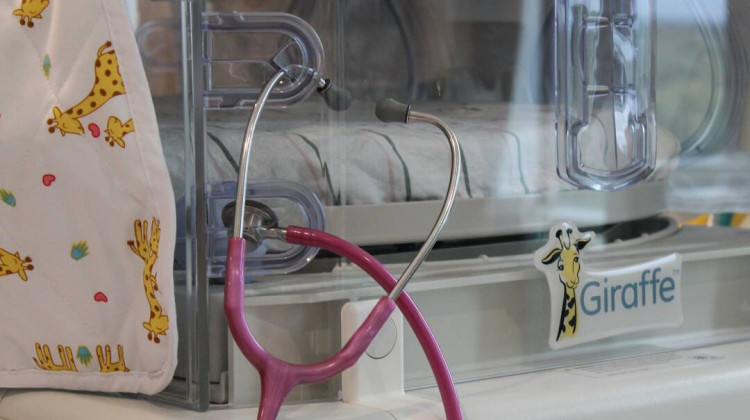A multi-state outbreak of hepatitis A has Hoosiers worried about their risk of infection.
The Indiana State Department of Health says more than 330 cases of the liver infection have been confirmed in Indiana since November. Most years, Indiana sees an average of just 20 cases.
We sat down with Amy Meek, Program Manager of the Monroe County Public Health Clinic, to find out more about the liver infection and how people should respond.
What exactly is hepatitis A?
Hepatitis A is an inflammation of your liver, and it is transferred fecal-oral. So, some types of hepatitis are transferred by blood. This is one you might get if someone has the disease and doesn’t wash their hands well, and then you come into contact with something they’ve touched.
The symptoms are nausea, vomiting, diarrhea, abdominal pain. If your liver gets really angry at you you’ll get jaundice, which is a yellowish tone of skin, and you can see that in your eyes.
It can take a couple weeks or more before you have the symptoms, but then they usually onset fairly quickly.
And treatment is really just supportive, so whatever the symptoms are, we just treat the symptoms.
Are there long-term effects if you're infected with hep A?
Most people who might have any long-term damage might have some other underlying disease as well, so we worry most about people who have other types of hepatitis.
So, if you already have hepatitis B or C, it’s really more important to prevent hepatitis A. The more damage we do to the liver, the more likely we are to have liver cancer or other problems down the road.
What's the difference between hepatitis A, B, C and E?
So in nursing school I remembered that your vowels come from the bowels, that’s how I remember my hepatitises.
So hepatitis A and E come from oral/fecal transferrence, everything else comes from blood-borne.
So if people having something like hepatitis C, we would recommend they get A and E vaccinations to prevent that exposure and further damage to their livers.
What should you do if you're exposed to hep A?
If you think you’re exposed, you need to report that immediately. If you were exposed, you can get vaccinated within the first couple of weeks and prevent disease onset.
The next thing is to just get vaccinated, period. With several cases in the community it’s really easy just to touch something someone else has touched and come into contact with hep A. So the best prevention is getting vaccinated.
Who should get the hep A vaccination?
Starting in 2014 it was routine for every child to be vaccinated when they started Kindergarten. So most of our kiddos are already vaccinated because it’s school required.
If you’re an adult you’re probably not vaccinated unless you sought it out yourself because it’s not been routinely recommended unless you had a high risk.
So people who travel a lot of times will get vaccinated because water sources in other countries might be contaminated, or people who have some other chronic conditions might have been vaccinated. But otherwise if you’re an adult you probably haven’t received the vaccine so you should check into that.
Is the hep A vaccine safe?
The vaccine is extremely safe, it’s one of the safest vaccines that we have. The only side effect really is a sore muscle at the injection site.
Even getting one vaccine is more than 90 percent effective. So it’s recommended that you get one vaccine and then another in six months.
And the vaccination provides lifetime immunity from the infection.
Where can you get a vaccination?
The Monroe County Public Health Clinic offers walk-in vaccines every Wednesday from 8:30 to 11:30 a.m. People can call the clinic to set up an appointment for another time.
Primary care physicians also offer the vaccination.
Indiana University is offering the hep A vaccine for students, faculty and staff at the Health Center.
Who is most at risk of Hep A infection?
So right now we see the outbreak of hep A has kind of been creeping up from the south from Kentucky into Indiana. Most of its going around our homeless population, those who have been recently incarcerated, those who have been using IV drugs. But certainly everybody could be at risk.
Is there an increased risk of infection as school starts?
The hep A vaccination is not normally required for colleges, but most of our new college students have had it because they’ve been in high school recently. So they need to check their records and see. And international students may have different requirements in other countries and may not have received it.
 DONATE
DONATE










 Support WFYI. We can't do it without you.
Support WFYI. We can't do it without you.